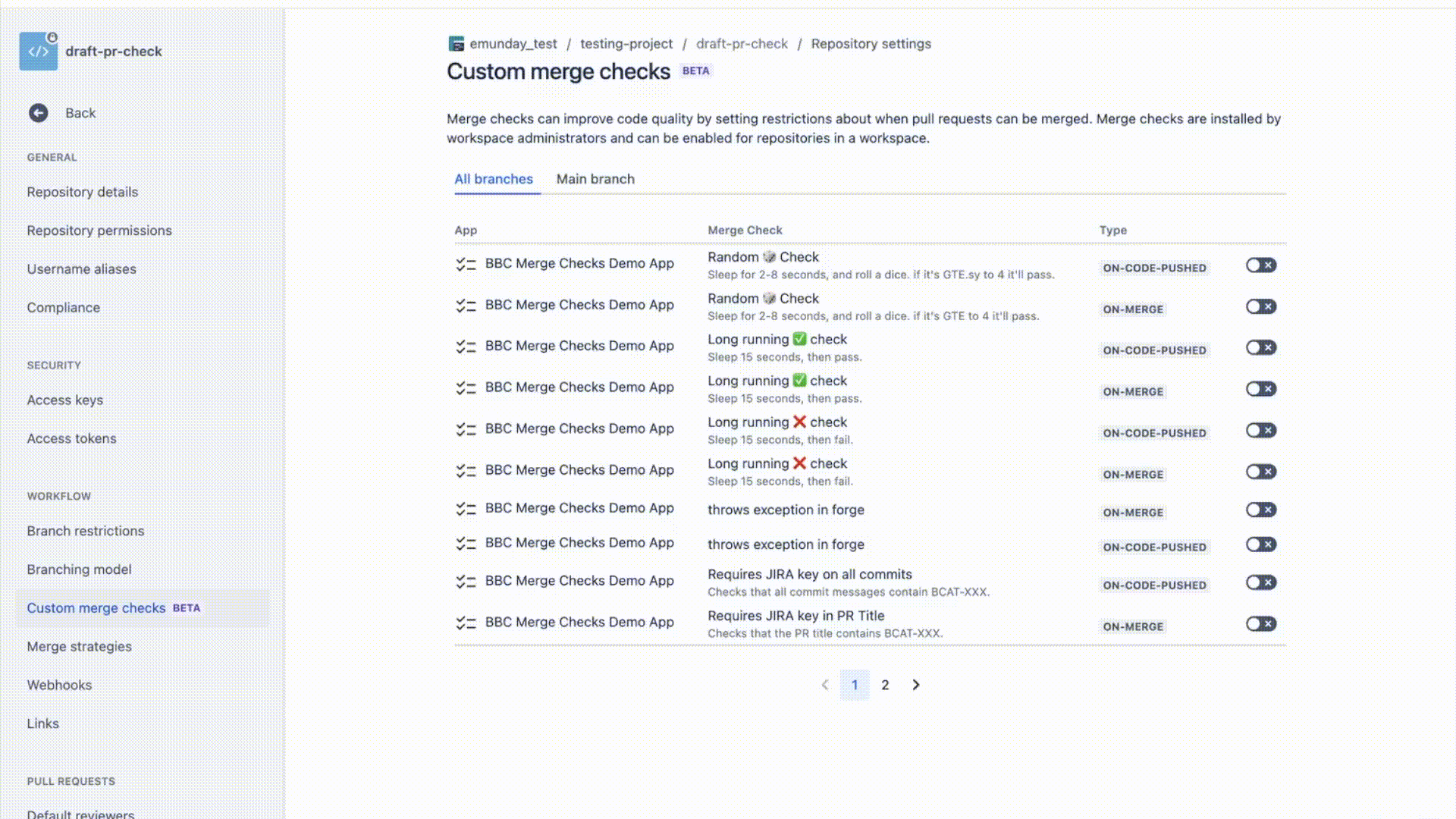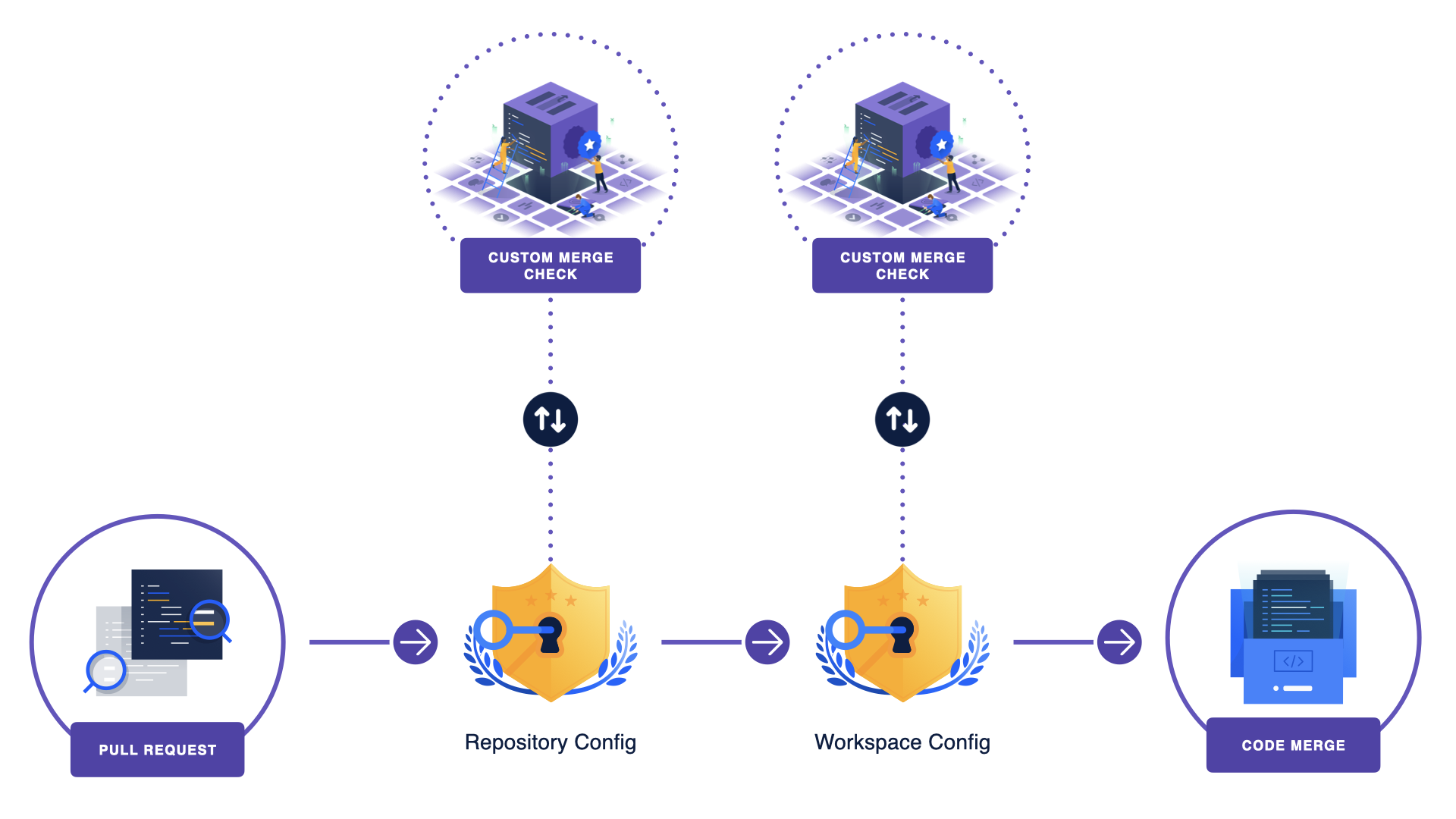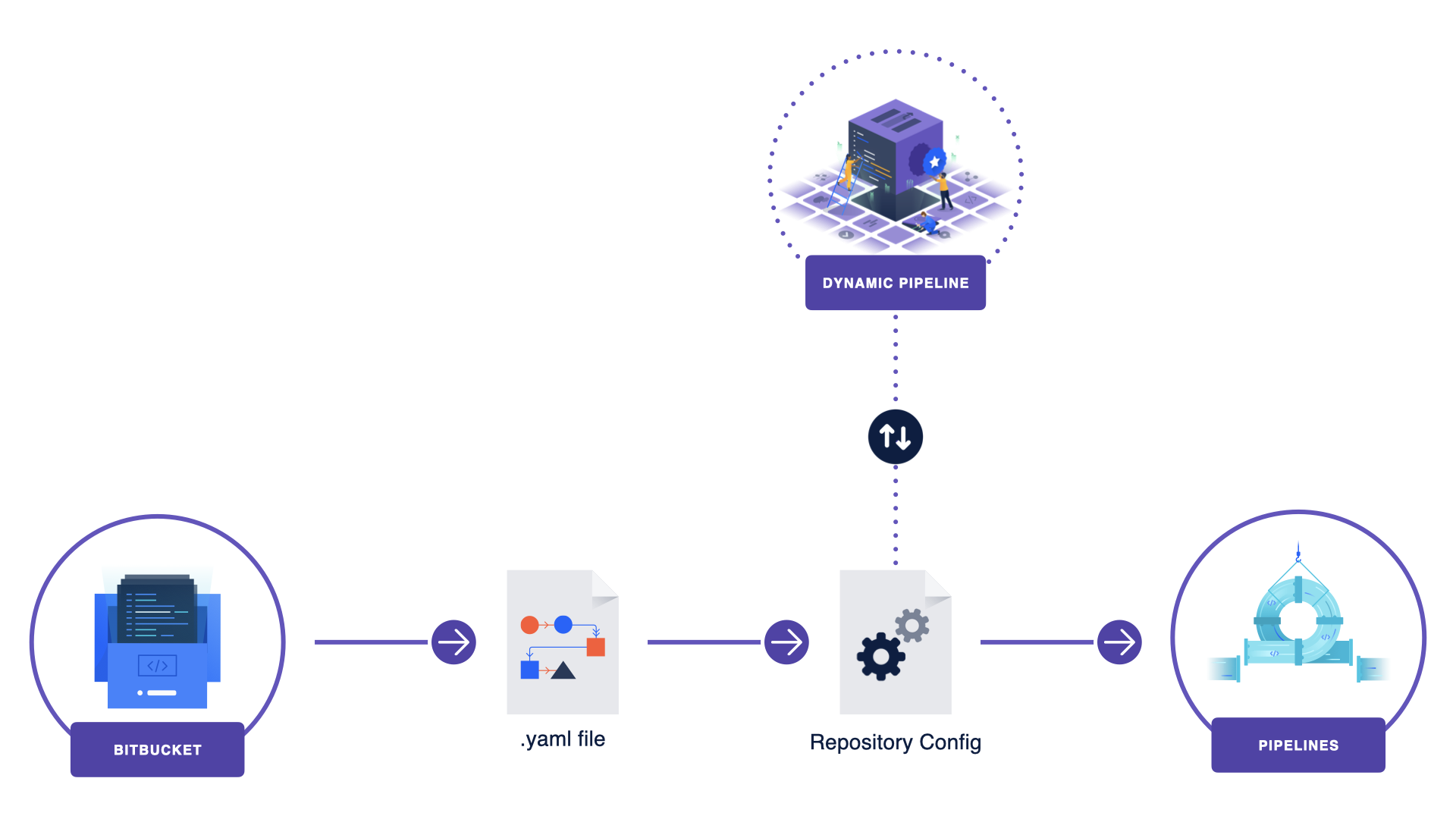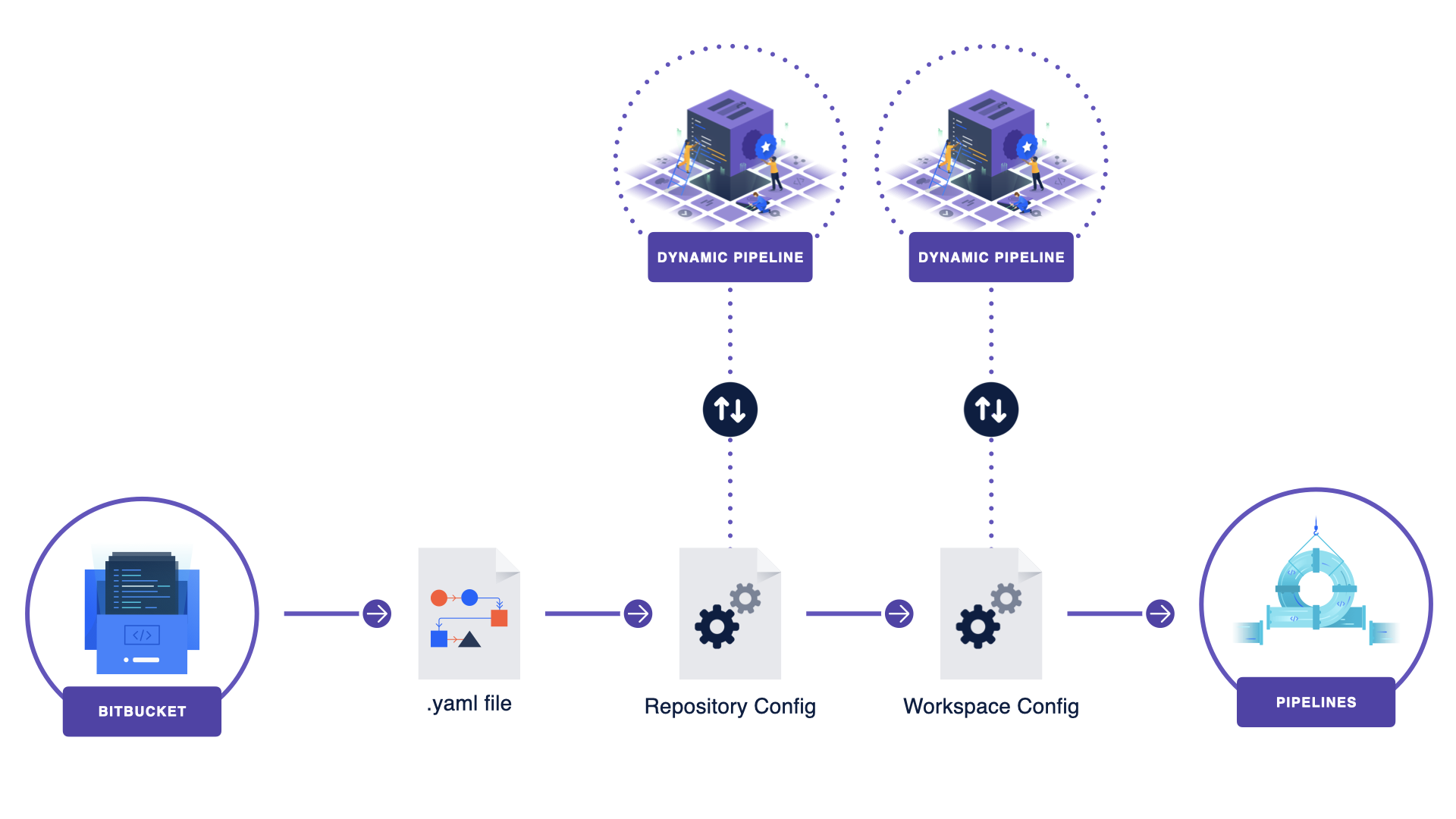Today, modern software organizations’ requirements for DevOps tooling has become more sophisticated and bespoke. We hear from many customers that they are building large, complex systems to augment and extend their DevOps workflows in ways that don’t work well with the tools they’re using.
This is why Bitbucket Cloud is on a mission to become the world’s most extensible cloud SCM and CI/CD product. Because we believe every modern software enterprise should be able to customize and extend their software development workflows to meet the exact needs of their organization – and that extensibility is key to operating effectively in the Cloud.
As part of our mission to empower our customers with greater extensibility, we’re excited to share significant improvements to Bitbucket Cloud that will help organizations streamline workflows, elevate code quality, and give developers even more space to deliver real value.
All of these features are built on top of Atlassian’s powerful Forge developer platform, implemented inside Bitbucket Cloud, to give our customers the flexibility and power to solve any business problem they encounter, no matter how bespoke or specialized.
Sign up for our webinar on May 8/9th, 2024 to learn how to use these features to build smarter CI/CD pipelines.
Improve code quality with sophisticated and flexible workflow controls

Today in Bitbucket many customers take advantage of our popular merge checks feature, which lets you enforce certain conditions on pull request merges (eg builds passing, minimum number of reviewers, completion of all pull request tasks, etc…). However, we’ve heard from customers that they want the ability to define their own criteria before allowing code to be merged into a repository via a pull request.
That’s why we built custom merge checks (currently in open-beta). Custom merge checks allow teams to define specific conditions, rules, and processes as code and ensure those conditions are met before allowing code to be merged into a repository via a pull request. With custom merge checks, teams and organizations gain more control over their codebase; empowering them to maintain higher code quality, with less human review and intervention.
We’re excited to announce that after a successful open-beta, custom merge checks will be entering general availability (GA) in late April 2024. For an overview of all the changes coming in the GA release, check out our companion blog.
Get started with custom merge checks today. We’ve had over 3K customers join our custom merge checks open beta since releasing it in December ‘23 and we’ve heard great feedback! To learn how to get started check out our documentation or pre-recorded live webinar. Got questions? Join us for a live demo and Q&A on April 9.
Standardise organisation-wide processes & policies all from a single place

Currently, custom merge checks are available at a repository level, but soon after GA we will be making them available at the workspace level as well. This will make it possible for central DevOps or platform teams to define, standardise, and enforce organisation-wide processes and policies — all from a single location.
This new capability, coupled with updates coming for GA to enable “required” vs “recommended” check enforcement, will provide customers with a powerful new suite of tools. In addition to enforcing required practises and policies, customers will be able to empower teams with contextual suggestions and reminders regarding best-practises and ways of working that provide real-time, context aware feedback to software engineers as they complete their work.
Coming soon: Intelligent CI/CD workflows with dynamic pipelines

Today with CI/CD, workflows have to be defined up-front and are static, making them inflexible and often difficult to work with in more complex situations.
As part of our focus on Bitbucket Cloud extensibility and customisability, we’re excited to share dynamic pipelines – on our near-term roadmap – that will significantly improve the way customers manage their CI/CD processes and workflows.
With Dynamic Pipelines, customers have the power to create CI/CD workflows that can adapt to changes in the development environment in real-time. Developers can modify pipeline behaviour at runtime using code, allowing for automated adjustments based on inputs such as branch name, commit message, files-impacted, or even information retrieved from systems external to Bitbucket Cloud entirely.
This will help DevOps teams improve with use cases like optimised builds, smarter test-execution, and workflows that can change and adapt based on external context.
Scaled CI/CD management for DevOps and platform teams

Dynamic Pipelines aren’t just for individual teams – this powerful capability is set to become the industry’s most powerful solution for managing CI/CD operations in large organizations. While repository-level Dynamic Pipelines empower individual teams to optimize DevOps workflows, workspace-level Dynamic Pipelines provide the ultimate tool for organization-wide CI/CD orchestration.
Workspace-level Dynamic Pipelines enable centralized platform teams to define company-wide policies, rules, and processes as code — and enforce them across every repository within their workspace, all from a single centralized location.
This is a game-changing capability — giving customers the power to truly standardize, orchestrate, and automate DevOps workflows across an entire organization from one place. We’re excited to announce that dynamic pipelines (at both the Workspace and Repository level) are on-track for launch in late April, just in time for Atlassian Team ’24.
Join us for a webinar diving deeper into dynamic pipelines in early May, and keep an eye out for our deep-dive feature blog on dynamic pipelines over the next few weeks.
Wrapping up – Customize your DevOps workflows!
The upcoming GA releases of custom merge checks and dynamic pipelines are part of our journey to empower you to customize and extend your software development workflows to meet the exact needs of your organization. Get started with custom merge checks today and join us for our dynamic pipelines webinar in early May.
And if you’re not using Bitbucket today as Atlassian’s native code & CI/CD solution, give it a spin.